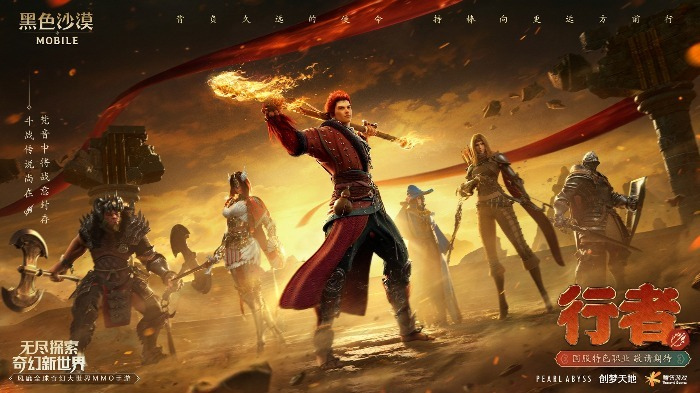Korean games
Korean game market needs new titles for breakthrough
Major S.Korean game companies' operating profits in the second quarter plunged
By Aug 14, 2023 (Gmt+09:00)
4
Min read
Most Read
LG Chem to sell water filter business to Glenwood PE for $692 million


Kyobo Life poised to buy Japan’s SBI Group-owned savings bank


KT&G eyes overseas M&A after rejecting activist fund's offer


StockX in merger talks with Naver’s online reseller Kream


Mirae Asset to be named Korea Post’s core real estate fund operator



South Korean game developers are struggling to revive gamers’ interest without releasing new blockbuster titles to fill the big shoes left by popular legacy games.
The total operating profit of Korea’s top 10 game publishers by market capitalization was halved to 405.5 billion won ($305 million) in the second quarter ended June this year from the same period of last year, according to their latest earnings reports.
Their total revenue also declined 10% to 3.3 trillion won over the same period.
The combined market value of Korea’s top 10 game developers is estimated at 49.5 trillion won.
Out of the top 10 Korean game companies, only three – Nexon Co., WeMade Co. and Com2us Corp. – saw an increase in their second-quarter revenue from a year ago, while five companies including Netmarble Corp., Pearl Abyss Corp. and Neowiz logged operating losses.
Netmarble extended the losing streak for the sixth quarter in a row, while another major player NCSoft Corp. reported a 71% on-year plunge in operating profit.
Their poor earnings were largely owed to the lack of new titles that can beat the success of the predecessors, said market analysts, adding that Korean games have also lost ground to local titles in China, which was once Korean games’ promising market.
As of Friday, the top 10 games in the Chinese game app market were titles published by local developers.

The home turf was no better than the Chinese market. The Korean game market grew a mere 1% on-year to 21.2 trillion won in 2022, according to the Korea Creative Content Agency. This was worse than the state-run agency’s earlier forecast of a 9% growth.
Over the same period, the country’s film, advertisement and music markets jumped around 20%, respectively.
NO NEW BLOCKBUSTERS
To make a breakthrough, Korean game companies are advised to release new blockbuster games.
NCSoft heavily relies on the Lineage series, a medieval fantasy massively multiplayer online role-playing game (MMORPG) that ushered in the MMORPG era in Korea immediately after its launch in 1998.
The Lineage series – Lineage W, M and 2M – accounted for 99% of the company’s mobile game revenue of 475.2 billion won in the second quarter.
The massive success of the Lineage series has, however, become a double-edged sword for the company.
After the company failed to develop new titles that could beat the Lineage legacy, its business has become lackluster.
Its operating profit in the second quarter plummeted 71% on-year to 35.3 billion won on a 440.2 billion won revenue, down 30%. Over the same period, Lineage sales decreased 33% to 339.9 billion won.
The company stock lately hovers around 263,000 won, a similar level recorded in end-2016.
But no imminent recovery is expected as NCSoft has delayed the launch of its three new games to next year from the second half of this year.
Another major Korean game developer Netmarble is also grappling with losses for several quarters due to a lack of new cash-cow games.
It released Tower of God: New World last month and plans to roll out seven more new games this year. As the company plans to release fewer new titles next year, it pins high hope on this year’s new games for a breakthrough.
Pearl Abyss has not launched any new games since the release of Black Desert in 2014. It earlier announced to complete the development of the new game Crimson Desert by the end of this year but its official launch date remains unknown.
Krafton Inc., the publisher of the popular battle royal game PlayerUnknown’s Battlegrounds, recently streamlined the team that has developed The Callisto Protocol, its new game that hit the market in December last year but has failed to lure gamers.

LACK OF DIVERSITY
To revitalize the Korean game industry, developers are also advised to diversify game portfolios currently centered around MMORPG games.
According to app market tracker Mobileindex Insight, of Korea’s top 10 games, seven are MMORPG games as of Sunday.
None of the top 10 games in the US is MMORPG, while only two RPG games join China’s latest top 10 game list.
Younger generations are not big fans of RPG games, either, according to a report released last year by Korean marketing company UNIVTOMORROW. Of people born in 1996 and after, 29% enjoy RPG games whereas more than 40% of those born before 1996 play them.
People in their 20s and younger, who are more familiar with short-form content, prefer shooting or open-world games over MMORPG, said industry observers, adding that game developers should revisit their game development strategy with more focus on younger generations.
Write to Ju-Hyun Lee at 2juhyun@hankyung.com
Sookyung Seo edited this article.
More to Read
-
 Korean gamesKorean game developers look to revive heyday with reboots of old hits
Korean gamesKorean game developers look to revive heyday with reboots of old hitsAug 11, 2023 (Gmt+09:00)
2 Min read -
 Korean gamesCom2us launches RPG game ‘Heir of Light: Eclipse’ in Canada, Indonesia
Korean gamesCom2us launches RPG game ‘Heir of Light: Eclipse’ in Canada, IndonesiaAug 02, 2023 (Gmt+09:00)
1 Min read -
 Korean gamesNexon’s Dave the Diver rises to global top game in 2 weeks after launch
Korean gamesNexon’s Dave the Diver rises to global top game in 2 weeks after launchJul 14, 2023 (Gmt+09:00)
3 Min read -
 Tech, Media & TelecomNCSOFT lays off 20% of US operation before new game release
Tech, Media & TelecomNCSOFT lays off 20% of US operation before new game releaseFeb 03, 2023 (Gmt+09:00)
1 Min read
Comment 0
LOG IN


